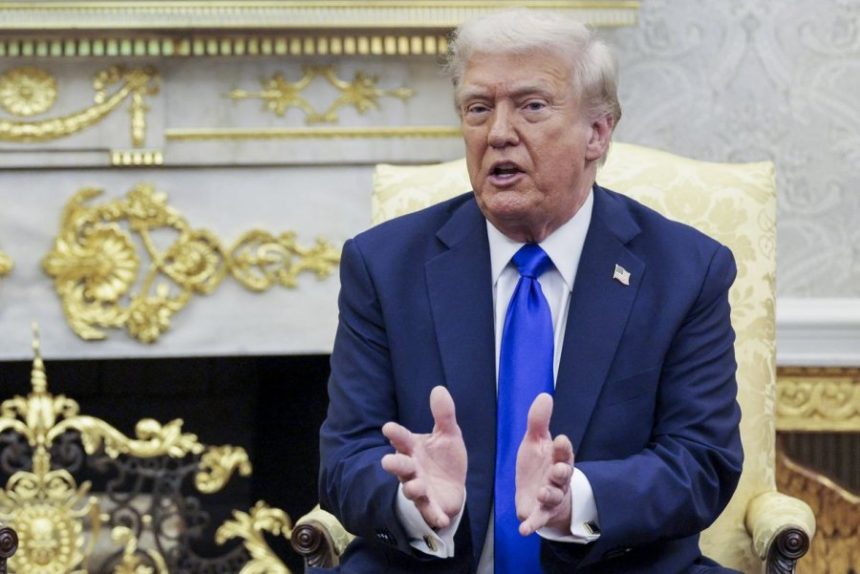Oct. 7 (UPI) — While the federal government is shut down without a budget, White House officials said tariffs could pay for food assistance for women, infants and children.
The Special Supplemental Nutrition Program for Women, Infants and Children provides assistance for nearly 7 million women, infants and children in low-income families, but it is running out of money due to the lack of a federal budget, according to CNN.
The program had enough funds for between one and two weeks before the current budget impasse in Congress would cause it to expend all available funds.
The federal government largely shut down on Oct. 1 because Congress has not passed a budget and continues to battle over a stopgap resolution that would reopen the government for between four and six weeks.
White House officials are considering using tariffs to pay for the WIC program until a federal budget is in place, White House press secretary Karoline Leavitt said in a post on X on Tuesday afternoon.
“The Democrats are so cruel in their continual votes to shut down the government that they forced the WIC program for the most vulnerable women and children to run out this week,” Leavitt said.
She said President Donald Trump and other White House officials have suggested using tariff money that goes into the federal government’s general fund to cover the WIC program costs during the shutdown.
The Treasury Department manages those funds, which are frozen until Congress approves a federal budget and the president signs it into law.
Until then, Trump has suggested Congress introduce and pass a measure that would designate those tariff funds specifically to cover WIC program costs.
The Senate repeatedly has voted down a House-approved continuing resolution that would fund the government for seven weeks while continuing to negotiate a 2026 budget for the federal government.
A competing measure sponsored by Senate Democrats would fund the federal government through Oct. 31.
It also would add $1.5 trillion in spending to extend the Affordable Care Act tax credits and expand Medicare coverage that opponents say would fund healthcare for “illegal migrants,” whom Senate Democrats have said already are not eligible for the subsidies.









